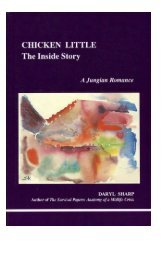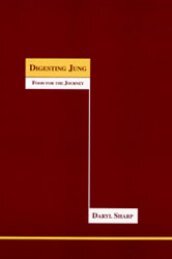Personality types: Jung's model of typology - Inner City Books
Personality types: Jung's model of typology - Inner City Books
Personality types: Jung's model of typology - Inner City Books
- No tags were found...
Create successful ePaper yourself
Turn your PDF publications into a flip-book with our unique Google optimized e-Paper software.
Introduction to Jungian Typology 33scious will. The others are wholly or partially unconscious,and the inferior function mostly so. Thus the conscious orientation<strong>of</strong> the thinking type is balanced by unconscious feeling,and vice versa, while sensation is compensated by intuition,and so on.Jung speaks <strong>of</strong> a "numinal accent" that falls on either theobject or the subject, depending on whether one is extravertedor introverted. This numinal accent also "selects" one or other<strong>of</strong> the four functions, whose differentiation is essentially anempirical consequence <strong>of</strong> typical differences in the functionalattitude. 29 Thus one finds extraverted feeling in an introvertedintellectual, introverted sensation in an extraverted intuitive,and so on.An additional problem in establishing a person's <strong>typology</strong>is that unconscious, undifferentiated functions can color a personalityto such an extent that an outside observer might easilymistake one type for another.For instance, the rational <strong>types</strong> (thinking and feeling) willhave relatively inferior irrational functions (sensation and intuition);what they consciously and intentionally do may accordwith reason (from their own point <strong>of</strong> view), but whathappens to them may well be characterized by infantile,primitive sensations and intuitions. As Jung points out,Since there are vast numbers <strong>of</strong> people whose lives consistmore <strong>of</strong> what happens to them than <strong>of</strong> actions governed by rationalintentions, [an onlooker], after observing them closely,might easily describe [thinking and feeling <strong>types</strong>] as irrational.And one has to admit that only too <strong>of</strong>ten a man's unconsciousmakes a far stronger impression on an observer than his consciousnessdoes, and that his actions are <strong>of</strong> considerably moreimportance than his rational intentions. 3029 Psychological Types, CW 6, pars. 982ff.30 Ibid., par. 602.










